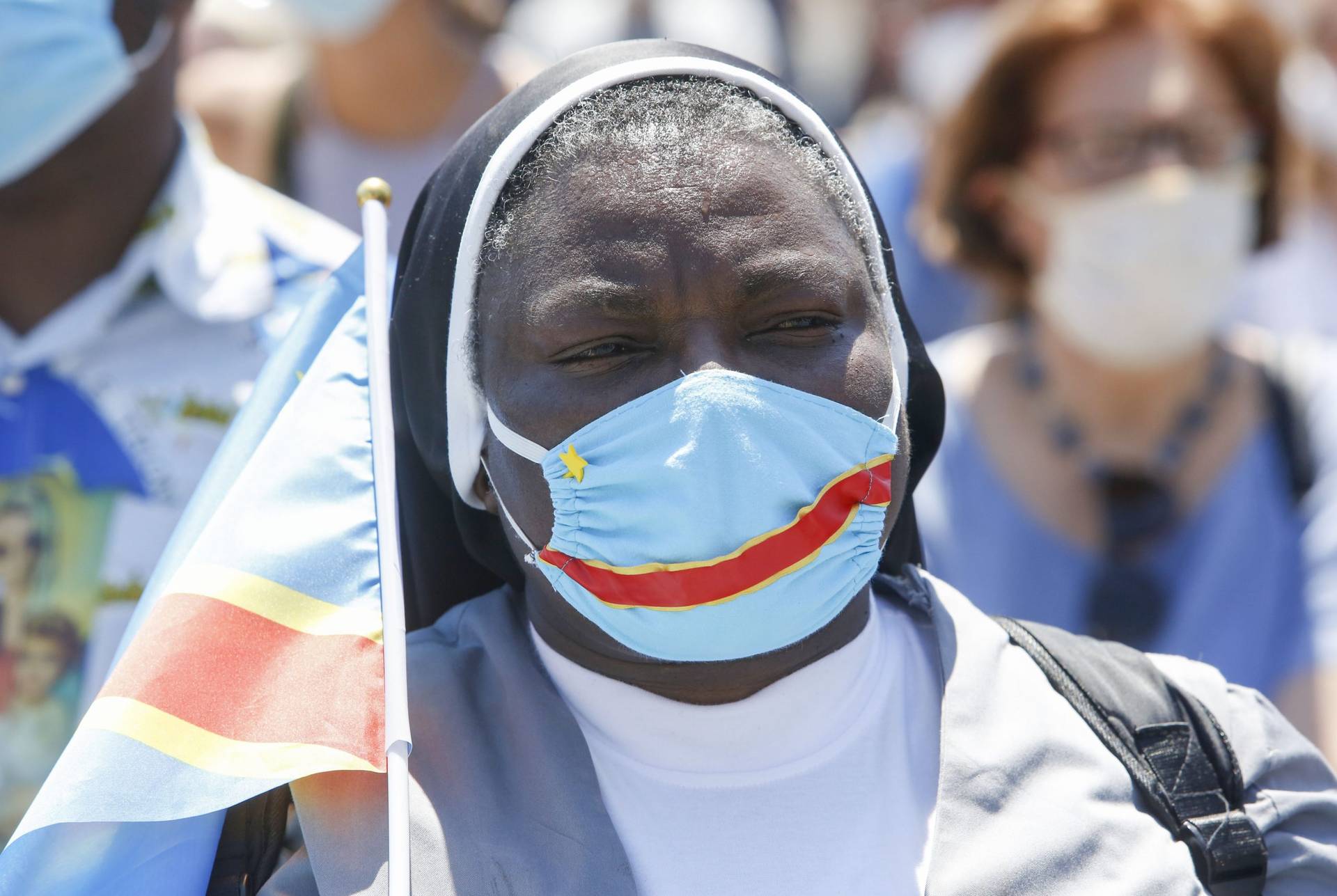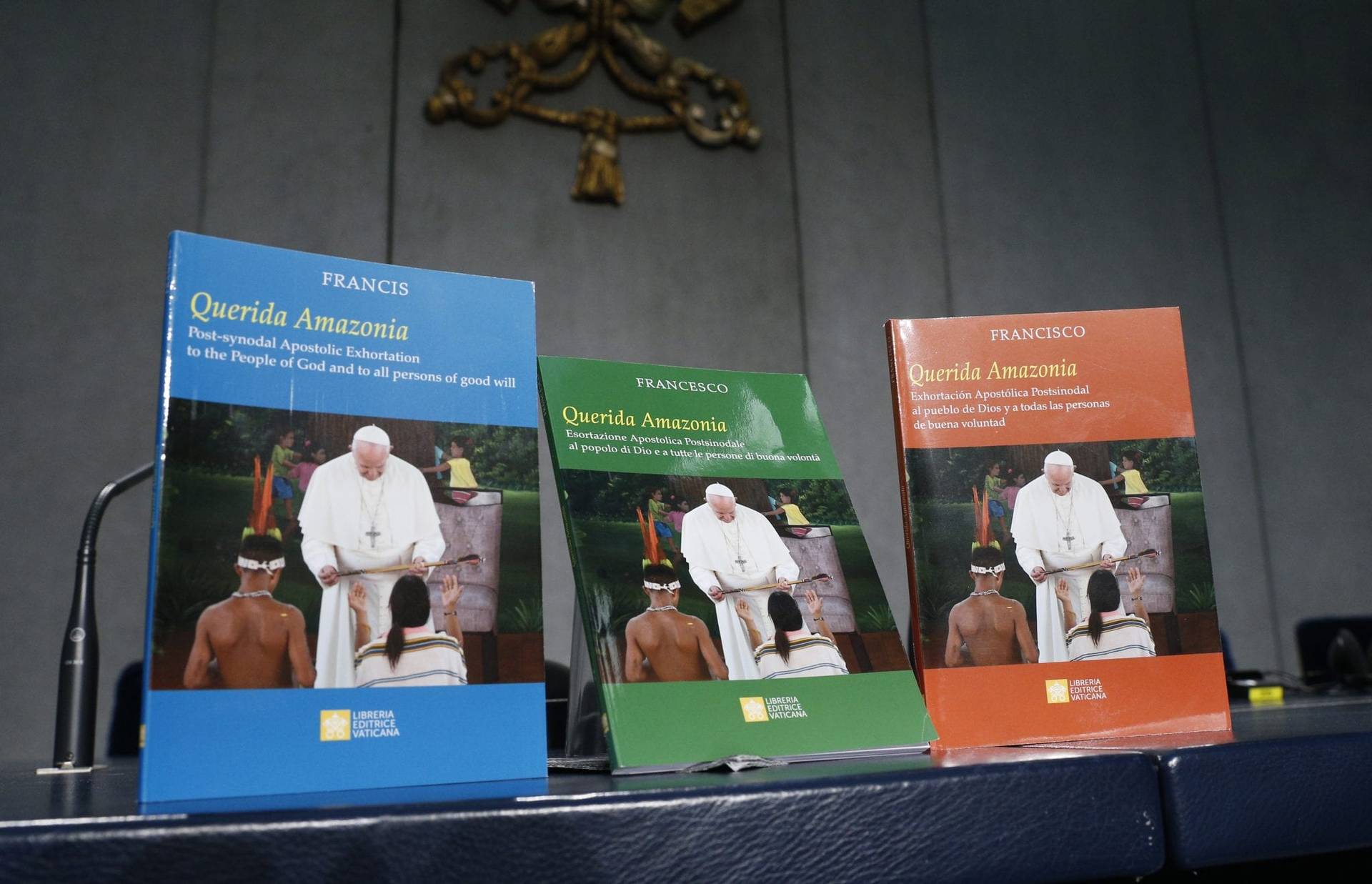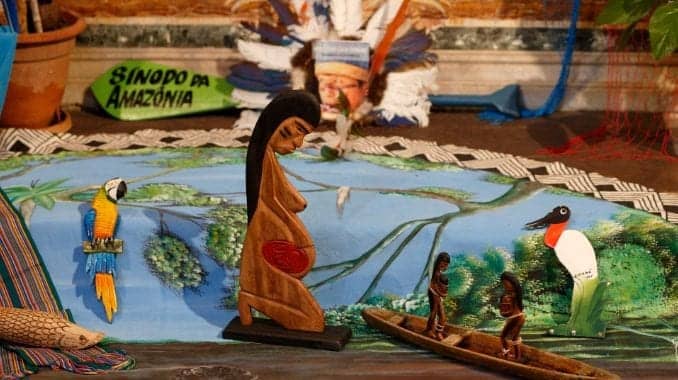ROME – According to Mexico’s most important cardinal, the Catholics who stole the small wood statue of a topless pregnant woman and those within the Church who are climate change deniers are the “black sheep” of the 1.3 billion-member family that is the Catholic Church.
Cardinal Carlos Aguiar Retes of Mexico City, currently in Rome participating in the Oct. 6-27 Synod of Bishops on the Amazon, told journalists on Tuesday that the theft of the statue, which some traditionalist Catholics have labeled a pagan symbol, was “sad, a pity.”
“In all the best families, there’s a black sheep,” he said. “And in the international community, there are also people who don’t believe in the damage we’re doing [to the planet].”
RELATED: Controversial Amazon statue stolen from church, thrown in Rome’s Tiber River
The cardinal was speaking with a small group of journalists, including Crux, at an event hosted by the newly arrived Mexican ambassador to the Holy See.
He also said that, based on what the experts and scientists participating in the synod have said, the bishops have a “generalized consensus” on the need to stimulate the conscience of the faithful on the care “of our common home,” and to give a practical impulse to Pope Francis’s 2015 document Laudato Si’.
There are two “fundamental things” that the Catholic Church can promote in this area, Aguiar said. The first is to generate an “ecological conversion,” so that people can realize the interrelation of ecosystems, biomes and human activity.
“We’re at a point of maximum alert,” he said. “Experts told us that there’s a point of no return, but that we’re still in time to stop the processes degrading our common home.”
RELATED: Amazon bishops pledge poverty, spurning plastics and taking the bus
And the Church – from top to bottom – has to demand governments generate politics that favor the care of the environment and provide them any assistance they can. As a church, he said, “We want to help generate a conscience in favor of the common home.”
“The human person is the only being that can either care for or damage the ecology,” he said. “I would not want for the apocalyptic scenes of the Book of Revelation to begin happening in this century.”
Speaking about the work being done by the synod, he said that the more than 180 bishops who are participating are expected to vote on the final document on Saturday morning. The document was drafted by a commission led by Brazilian Cardinal Claudio Hummes, the emeritus Archbishop of Sao Paolo and the relator of the synod, and the participants will spend most of this week suggesting amendments.
Aguiar began his conversation with the journalists by noting that a synod is not a parliament but a consultative body, and as such does not have the power to make decisions. Instead, they will make a series of suggestions that will then be given to Francis. If tradition holds, he will then produce what is known as a post-synodal exhortation.
The Mexican cardinal remained mostly tight-lipped about the suggestions that are being made to Francis, though he did reveal one idea of creating an institution with juridical standing to bring together all the bishops from the more than 70 dioceses that are in the Amazon region.
RELATED: ‘We are all responsible’: Bishop urges lifestyle change to protect Amazon
This idea was also floated on Tuesday by Bishop Miguel Cabrejos Vidarte, head of the Peruvian bishops’ conference and president of CELAM, the conference of bishops for the entire Latin American region.
One of the most debated issues throughout the synod was the possibility of ordaining married men to the priesthood. This has been referred to as the viri probati – or “men of proven virtue” – option.
“Within the synod, the issue of the viri probati is marginal,” Aguiar said. “It’s something that worries the dioceses within the Amazon territory, the shortage of priests. It was noted during the synod that this is a problem that is also occurring in other places, particularly in Europe. We should ask ourselves what is the cause for the shortage, and look for solutions.”
RELATED: Amazon prelate floats alternative to married clergy: Send some Roman priests home
The discussion so far, he said, was constricted to opening this possibility in the Amazon, but not beyond that. He said that he believes there will be a consensus on the suggestion to study the possibility, but at the end of the day, it’ll be Francis who decides if the issue merits being considered.
When it comes to the causes for the shortages of priests, Aguiar said that the bishops from the Amazon have said that at the center of the problem is the absence of an adequate ministry that can inspire vocations within the indigenous peoples. There’s an intention to work on this, but it’s a long-term objective, and the possibility of ordaining permanent deacons into the priesthood could prove helpful in the next two decades.
Follow Inés San Martín on Twitter: @inesanma
Crux is dedicated to smart, wired and independent reporting on the Vatican and worldwide Catholic Church. That kind of reporting doesn’t come cheap, and we need your support. You can help Crux by giving a small amount monthly, or with a onetime gift. Please remember, Crux is a for-profit organization, so contributions are not tax-deductible.















